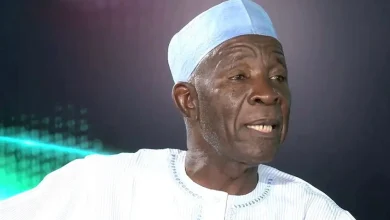Top Court Declares No More Interventions Needed on Voting Rights for Inmates

Nigeria’s Supreme Court has reiterated that the Independent National Electoral Commission (INEC) is empowered by the constitution to choose election sites, including those for prisoners housed in the nation’s prisons.
According to the ruling in Victor Emenuwe & 4 ORS (for an inmate in Nigeria) v. Independent National Electoral Commission (INEC) & Anor (Appeal No: SC/1135/2019), the Nigerian Correctional Service (NCoS), or INEC, has the authority to decide how and where inmates will cast their ballots. This includes moving inmates to the closest polling places or setting up polling stations inside correctional facilities.
The court stressed that the detainees themselves shouldn’t have to worry about the logistical or security issues that come with moving.
This verdict comes after a protracted legal struggle in which prisoners, through their attorney, President Aigbokhan, Freedom of Information (FOI), Counsel, challenged a portion of the Court of Appeal’s ruling that left the site of inmate voting up to INEC and NCoS’s discretion.
The prisoners had applied for permission to appeal, citing the logistical impracticities and security threats associated with the relocation process as their grounds.
Speaking to reporters in Benin about the Supreme Court’s decision, President Aigbokhan recalled that on December 16, 2014, the Federal High Court ruled that INEC’s denial of voting rights to prisoners was unconstitutional and directed INEC and NCoS to implement the necessary procedures to allow prisoners to vote in all elections.
He asserted, however, that the ruling only applied to the prisoners named in the complaint.
He said that because the prisoners were unhappy with the ruling, they filed an appeal with the Court of Appeal, which on December 7, 2018, upheld the prisoners’ ability to vote, awarded them representative standing, and ordered INEC to amend its National Voters Register in line with the ruling.
However, the Court of Appeal refused to order INEC to set up registration centers within prisons, leaving inmates with the option of moving to outside polling places or setting up centers inside penal facilities.
“The Supreme Court appeal resulted from this ambiguity and the potential disenfranchisement it presented.”
This was a legacy application designed to smooth out some implementation curves, said President Aigbokhan, the detainees’ principal attorney.
Read Also: Ronke Oshodi-Oke Defends Tope Alabi Amid Wedding Drama, Praises Iyabo Ojo’s Support
“Effective and secure measures must be in place when addressing electoral rights. The lower courts’ disregard for the security and population consequences of moving prisoners to vote was the main point of our appeal.
On election days, movement is usually restricted to allow INEC and security services to conduct elections efficiently, he continued. We trust that the enforceability of the prisoners’ right to vote is not seriously jeopardized by the introduction of unrealistic procedures.
The motion for leave to appeal was denied by Hon. Justice Adamu Jauro, JSC, who delivered the decision on Monday, May 5, 2025, citing the constitutional confirmation of prisoners’ right to vote.
The Supreme Court is under no additional duty to defend it from implementation risks. According to the Court, contempt proceedings can now be used to remedy any obstacle or departure from that right.





